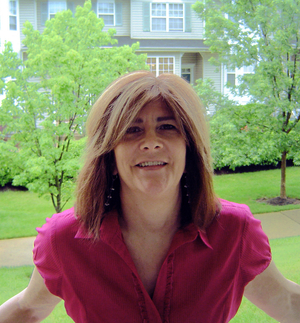John I:1 "In the beginning was the Word, and the Word was with God and the Word was God.-resized-600.jpg) Words are important. They hold a special vibration. The entire universe is vibrating, including one's neutrons and protons. Music is all about vibration. Even the larynx within one's throat vibrates to make the sound of speech and music. Rhythm is a reflection of the language (words) of the speaker's country. InGreece, language (words) moves in 5s and 7s, thus, much of the music moves the same way. In Western countries, language (words) moves in 2s and 4s, and less often in 3s, thus, much of the music moves the same way.
Words are important. They hold a special vibration. The entire universe is vibrating, including one's neutrons and protons. Music is all about vibration. Even the larynx within one's throat vibrates to make the sound of speech and music. Rhythm is a reflection of the language (words) of the speaker's country. InGreece, language (words) moves in 5s and 7s, thus, much of the music moves the same way. In Western countries, language (words) moves in 2s and 4s, and less often in 3s, thus, much of the music moves the same way.
Words are important. They hold a special vibration. I have always told my piano students that it is important to count (numbers) aloud. Not only is it important, but it is a privilege to play and count aloud because many instruments cannot do this. The clarinet, the flute player, the trombone player, and many more players are busy breathing, and can't breathe and count aloud at the same time. I also tell my students that the more senses they use—hearing, touching, smelling, speaking, tasting—the quicker they will learn the music and the better musician they will become. I have even gone so far as to suggest that maybe each piano key should have a smell and a taste; all the Cs could be chocolate, and the Ds could be vanilla. (Smell and taste are the two senses that pianists are missing.) Even more, I LOVE it when kids sing the counts. That way, they get a chance to sing the phrases. Piano music doesn’t usually have words. It's more difficult for pianists to develop good phrasing (A phrase is a musical thought, somewhat like a sentence). But, if they are forced to sing the counts, they kill two birds with one stone— phrasing and rhythm.
All this usually falls on deaf ears (no pun intended). Kids just don't like to count/sing aloud. I find myself counting and singing a lot alone, then all of a sudden noticing that I am counting and singing alone. Then, I find myself getting annoyed that I am counting and singing alone. Then, I stop counting and singing alone, and tell the student that I am tired, and it is their turn. For whatever reason, the students are happy to watch me go through this exercise. They just don't like to count/sing out loud. I have never figured this out. Kids love to talk. Facebook. Texting. Twitter. Email. (...all electronic talk) But, when it comes to rhythm and counting and singing, they are as shy as a newborn kitten. I have had kids tell me they don't like to count/sing out loud and then ask, "Can I just count inside myself?" Once in a while, a student will be so proficient rhythmically that this works. In that case, I let them count silently. But, for the most part, if they are not singing-counting out loud, they will "blow through" all the notes that should be held, and lengthen the notes that should be faster.
Words are important. They hold a special vibration. The one bright spot for kids is 20th century music in which the rhythm is relaxed and "swings". In that case, I start at the opposite end of the spectrum—we make a story (words) to fit the rhythm; we clap and speak, or clap and sing the rhythm; we play the notes to match the words. This helps "loosen up" the rhythm and the kids. It is much easier to relax the rhythm and "swing" by using the words first, and understanding the counting (numbers) second.
Words are important. They hold a special vibration. It's not that easy to count and play at the same time. It's part of the multi-tasking that all musicians must do. That's likely why the kids just don't like to do it. After all, if you had to read, track left to right and wrap the page, listen, sing, count, play 10 notes at once, think, and move your foot at the same time, all without stopping, wouldn't you be on overload? Yes. But, believe it or not, once you get used to it, learning the music is just that much easier.
Words are important. They hold a special vibration.
'Gotta love the words!
Phyllis Schmidt, Piano Instructor at Hunterdon Academy of the Arts


COMMENTS